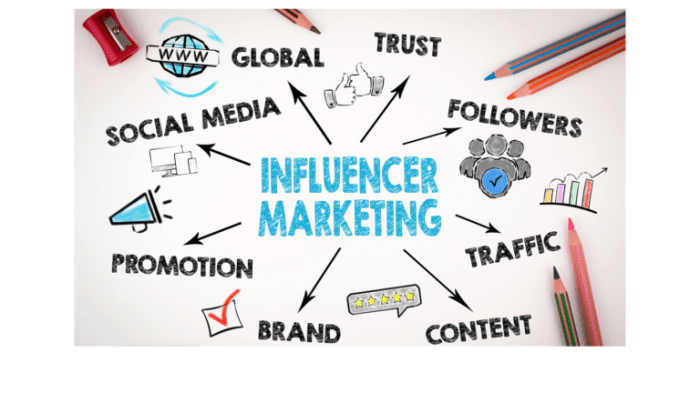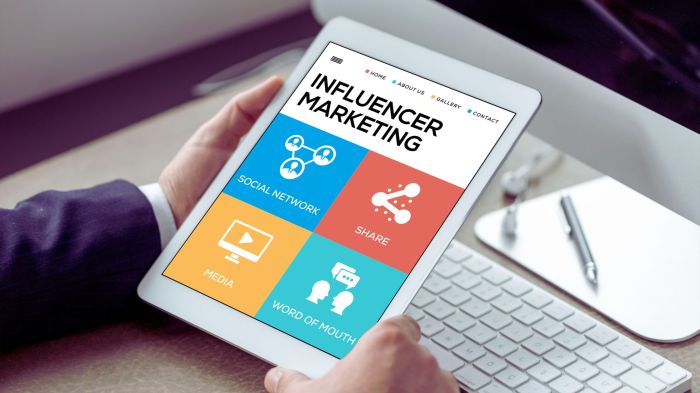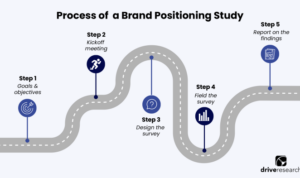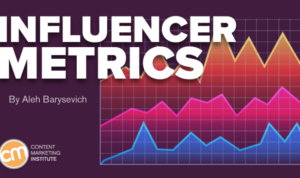Building an Influencer Marketing Campaign kicks off with a bang, diving into the dynamic world of influencer partnerships and digital marketing. Get ready to explore innovative tactics and proven methods to elevate your brand’s online presence.
In today’s fast-paced digital landscape, connecting with influencers can be the key to unlocking new opportunities and reaching a wider audience.
Understanding Influencer Marketing Campaigns: Building An Influencer Marketing Campaign
Influencer marketing campaigns involve collaborating with individuals who have a significant online following to promote a brand or product to their audience. These influencers can range from social media personalities to bloggers and YouTubers.
In today’s digital landscape, influencer marketing has become a vital strategy for brands to reach their target audience in a more authentic and engaging way. With the rise of ad blockers and the decline of traditional advertising effectiveness, consumers are turning to influencers for recommendations and trusted opinions.
Importance of Influencer Marketing
- Builds credibility and trust: Influencers have built a loyal following who trust their recommendations, making influencer marketing an effective way to build credibility for a brand.
- Reaches target audience: By collaborating with influencers whose audience aligns with the brand’s target demographic, companies can reach potential customers more effectively.
- Drives engagement: Influencers create engaging content that resonates with their followers, leading to higher engagement rates compared to traditional advertising.
Examples of Successful Influencer Marketing Campaigns
- Flat Tummy Co: This brand collaborated with various fitness influencers to promote their meal replacement shakes, resulting in a significant increase in sales.
- Daniel Wellington: The watch brand partnered with Instagram influencers to showcase their products, leading to a boost in brand awareness and sales.
- Spotify: Spotify worked with popular music influencers to create playlists and promote the platform, increasing user engagement and subscriptions.
Identifying Target Audience and Goals

Identifying the target audience and setting clear goals are crucial steps in creating a successful influencer marketing campaign. By knowing who you want to reach and what you want to achieve, you can tailor your campaign for maximum impact.
Identifying Target Audience
- Conduct market research to understand the demographics, interests, and behaviors of your target audience.
- Utilize social media analytics tools to gather data on your current followers and customers.
- Engage with your audience through surveys, polls, and feedback to gain insights into their preferences.
Setting Clear Goals
- Increasing brand awareness: Reach a larger audience and boost visibility for your brand or product.
- Driving engagement: Encourage likes, comments, shares, and other interactions with your content.
- Generating leads: Capture potential customers’ information for future marketing efforts.
- Increasing sales: Drive conversions and revenue through influencer partnerships.
Choosing the Right Influencers

When selecting influencers for a marketing campaign, it is crucial to consider various factors to ensure the success of the collaboration. The right influencers can help reach the target audience effectively and authentically, leading to higher engagement and conversion rates.
Criteria for Choosing Influencers
- Relevance: The influencer should align with the brand’s values, message, and target audience to establish credibility and authenticity.
- Reach: Consider the influencer’s follower count, engagement rate, and overall influence to determine their impact on the campaign.
- Audience Demographics: Analyze the influencer’s audience demographics to ensure they match the target audience of the campaign.
- Engagement: Look at the influencer’s engagement rate, comments, likes, and shares to gauge their ability to drive action among their followers.
- Authenticity: Authenticity is key in influencer marketing, so choose influencers who genuinely connect with their audience and are not just promoting products for money.
Types of Influencers and Impact
| Type of Influencer | Impact on Campaign |
|---|---|
| Celebrity Influencers | High reach and visibility but might lack authenticity. |
| Micro-Influencers | Smaller reach but higher engagement and authenticity among niche audiences. |
| Macro-Influencers | Balanced reach and engagement, suitable for broader campaigns. |
| Brand Ambassadors | Long-term partnerships for consistent brand advocacy and loyalty. |
Collaborating with Influencers
Building strong relationships with influencers is crucial for the success of your influencer marketing campaign. These relationships are built on trust, mutual respect, and effective communication. When influencers feel valued and respected, they are more likely to produce high-quality content that resonates with their audience.
Strategies for Effective Collaboration with Influencers
- Establish clear expectations: Clearly Artikel the goals, deliverables, and timeline of the collaboration to ensure both parties are on the same page.
- Communicate effectively: Maintain open lines of communication with influencers to address any concerns or questions they may have throughout the collaboration.
- Provide creative freedom: Allow influencers the creative freedom to showcase your product or service in a way that aligns with their personal brand and style.
- Offer fair compensation: Recognize the value that influencers bring to your campaign and offer fair compensation for their time and efforts.
- Build a long-term relationship: Consider establishing long-term partnerships with influencers to create ongoing, authentic content that resonates with their audience.
Tips for Creating Authentic Content with Influencers
- Encourage transparency: Encourage influencers to disclose any partnerships or sponsored content to maintain trust with their audience.
- Focus on storytelling: Work with influencers to create engaging content that tells a compelling story and connects with their followers on a personal level.
- Showcase real experiences: Encourage influencers to share their genuine experiences with your product or service to create authentic and relatable content.
- Engage with their audience: Encourage influencers to engage with their audience through comments, likes, and shares to build a sense of community around your brand.
- Monitor performance: Track the performance of the content created by influencers to understand what resonates with their audience and optimize future collaborations.
Measuring Success and ROI
In order to determine the effectiveness of an influencer marketing campaign, it is crucial to measure key metrics to track success and calculate the return on investment (ROI) accurately.
Key Metrics for Measuring Success, Building an Influencer Marketing Campaign
- Engagement Rate: Measure the level of interaction and engagement with the influencer’s content, such as likes, comments, and shares.
- Reach and Impressions: Evaluate the number of people who have seen the influencer’s posts and the potential exposure to the target audience.
- Conversion Rate: Track the percentage of users who take a desired action, such as making a purchase, after seeing the influencer’s content.
- Brand Sentiment: Monitor the sentiment and perception of the brand among the audience after the influencer marketing campaign.
Calculating ROI of a Campaign
To calculate the return on investment (ROI) of an influencer marketing campaign, use the following formula:
ROI = (Revenue Generated – Cost of Campaign) / Cost of Campaign * 100
Tools and Platforms for Tracking Performance
- Google Analytics: Provides insights on website traffic, conversions, and user behavior resulting from influencer campaigns.
- Social Media Analytics: Platforms like Instagram Insights, Facebook Insights, and Twitter Analytics offer data on post performance and audience demographics.
- Influencer Marketing Platforms: Tools like AspireIQ, Traackr, and Upfluence help manage campaigns, track performance, and measure ROI effectively.





